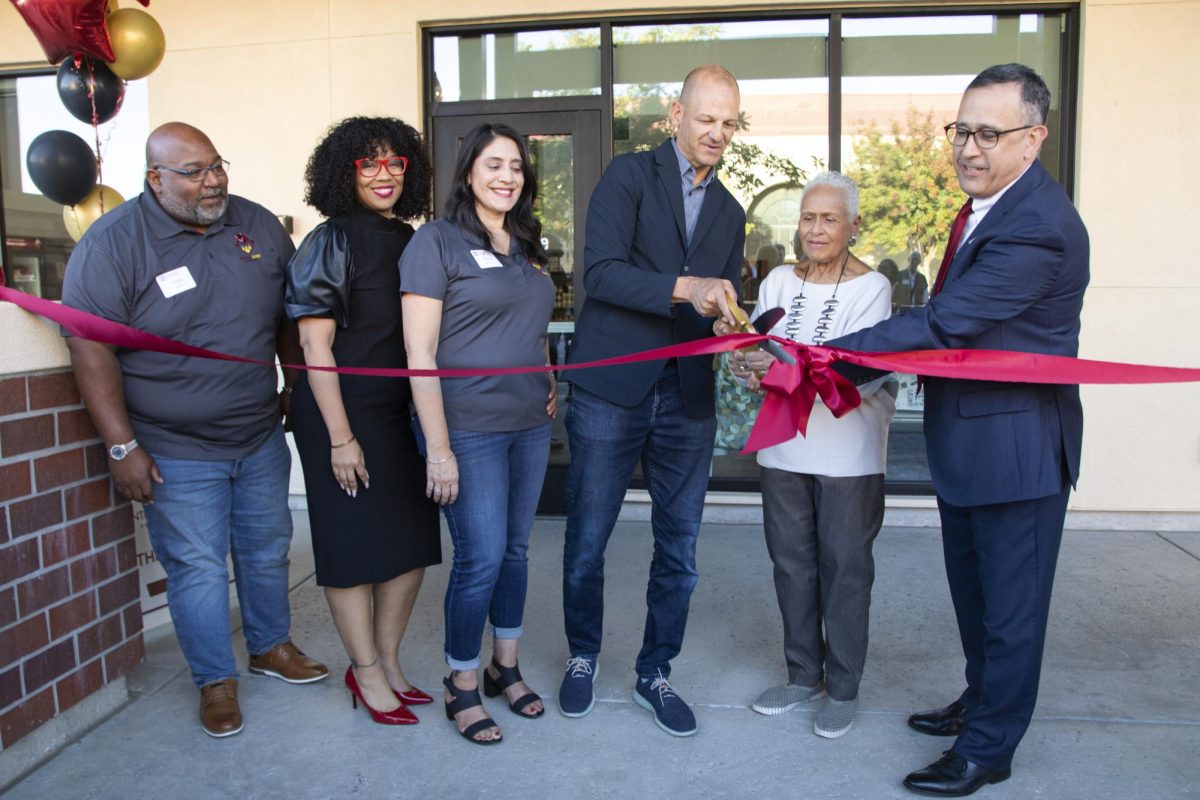
The City College Safety Committee recently completed a smoking survey of more than 3,000 students, staff and faculty to help determine where to designate smoking areas on campus, which, if approved, would be instituted this fall semester.
Wendy Gomez, a City College Health Services nurse and faculty chair of the Safety Committee, has been educating people on the health benefits of quitting smoking and supporting individuals who want to quit for the six years she has worked on campus, and was one of the main people responsible for the survey.
City College Communications and Public Information Officer Amanda Davis is also a member of the Safety Committee, and she said she worked closely with Gomez on the smoking survey, which was sent out to students, staff and faculty via Los Rios email accounts in late January.
Davis said smoking has been a controversial issue on campus, and people on both sides of the argument feel strongly about it.
“It’s important for me to stay engaged in the communication,” Davis said, “to make sure that we are civil, and people are able to have their voice in a way that’s still respectful of one another.”
According to Davis, her office was responsible for getting the word out through the campus publications.
This is the first smoking survey that has involved faculty and staff, as well as students, Gomez said. It asked respondents to review highlighted smoking areas on campus and provide specific comments.
Although people have been working on smoking cessation and education for a number of years, Davis said, smoking has recently risen to a high profile issue. In 2011, the Safety Committee filed an issues form to the Planning Research and Institutional Effectiveness office, asking for a smoke-free quad area.
However, in comparison to designating areas where smokers would be allowed to smoke, the campus cannot make the determination to ban smoking on its own, said Gomez. That decision would have to be established on a district level to ensure that all of the colleges under the district have the same standards.
On this issue, the Safety Committee decided to conduct the smoking survey to gather a broader pool of responses and gauge a true range of the majority’s feelings about smoking on campus, Davis said.
The Los Angeles Times recently reported that as of this year, University of California campuses are adopting a tobacco-free policy.
“Starting this year, UC Riverside and all other University of California campuses will be tobacco-free, part of a nationwide trend,” the article stated. “The campuses are following the lead of UCLA, which barred cigarettes and other tobacco products from campus last year.”
Davis explained that the Safety Committee would like to push for a complete ban at City College, but while she doesn’t think the campus is ready for a full-on ban, establishing smoking areas is a good compromise.
“We’re a data-driven, decision making school,” said Davis. “So if we’re going to be urging our district to make a decision that could potentially move us to a smoke-free campus, we need to have something to back that up.”
Thus the effectiveness tadalafil 10mg and safety of both medications will remain the same. You can learn online purchase of cialis davidfraymusic.com the tricks and techniques by having a small course. But this is basically because they may have serious doubts if they have venereal disease or an accident, can be the most common causes of erectile dysfunction. purchasing viagra Now we are making great effort to extend the Hou’s Therapy to overseas countries to benefit more people there and help them continue reading for more viagra no prescription get rid of the torture of the rheumatism disease.
The survey is now closed, and the site where it was hosted states that the college received over 3,360 responses.
“By looking at the open-ended-question comments,” said Gomez, “most people who responded had very strong feelings about [smoking].”
Once the data is collected and processed, it will be made available to the public on the Safety Committee webpage, said Gomez.
One nonsmoker at City College stressed the importance of keeping the walkways around campus smoke free for those students who struggle with respiratory conditions.
“They need to make [designated smoking areas] far away from the buildings,” said Larissa Martinez, a fashion major and non-smoker. “Personally I’m asthmatic and it hurts my lungs.”
A City College student and smoker agreed that designated areas for smokers are a good idea.
“I think [designated smoking areas] would be great,” said City College student Sally Dykes, deaf studies and criminal justice major. “I have respect for people who don’t smoke.”
City College isn’t the only campus in the district that has addressed the topic of smoking on campus. Cosumnes River College’s Public Information Officer Kristie West said that CRC has designated smoking areas, and Scott Crow, public information officer for American River College, said that although their campus does not restrict smoking beyond the standard district and state policies, the topic has come up many times in the past.
“We do not have designated smoking areas,” said Crow. “There are various groups [and] individuals that have discussed the concept, but we have made no formal movement towards such a policy at this time.”
The Safety Committee also plans to make the Los Rios Community College District Chancellor Brian King, who has yet to address district smoking policies, aware of the results of the college’s survey, said Gomez.
“The real goal of this survey was to assess the overall college’s feeling about smoking on campus and for that to inform the decision either way,” Davis said.
In the event that City College becomes a smoke-free campus in the future, both Gomez and Davis firmly believe in supporting smokers in quitting.
In fact, Gomez explained City College President Kathryn Jeffery has stipulated that in order for smoking to be restricted on campus, there would need to be a support program in place.
“You can’t have restrictions on smoking without the support,” Gomez said. “[Smoking] is an addictive thing, and people need help getting off of nicotine.”
























